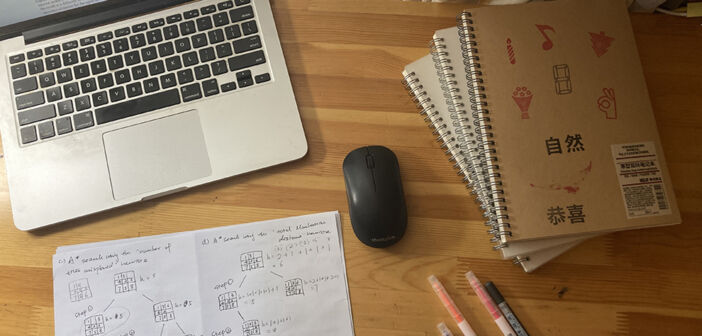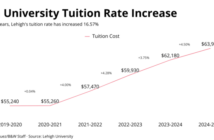As the spring semester picks up, students across campus are continuing to feel the effects of the pandemic and remote learning. These challenges are felt particularly by international students.
International students have had to adjust to time differences, keeping in touch with family and staying both physically and mentally healthy.
Beatrice Pinetti, ‘22, has been studying remotely from her home in Milan for the entire year.
She attributes her main source of difficulty to be time differences.
Since Milan is six hours ahead, Pinetti’s classes go late into the night. She said she has class everyday until 10:30 p.m. and it is challenging for her to complete assignments and get involved extracurricularly.
She said her professors have been accommodating to her situation and the asynchronous nature of most of her classes allows her to learn at her own pace.
Yael Schmoisman, ‘22, said she has had less than ideal encounters with time accommodations.
Originally from Brazil, Schmoisman lived off campus last fall but decided to return to her mother’s home in California for the spring semester. This is her first encounter with time differences while learning remotely.
She said some of her professors are remaining adamant she attends regularly scheduled meetings and exams. But, that means Schmoisman must wake up at 5:30 a.m. to attend lectures.
“It’s so inconvenient,” Schmoisman said.
Some international students decided to come back to Bethlehem for this school year despite travel difficulties.
Giovanna Zamora, ‘21, is living off campus this year instead of from home in Brazil. She said while the time difference isn’t an issue for her academically, it makes it difficult for her to go home and communicate with her family and loved ones.
She returned to Brazil this summer and for winter break, but said the traveling experience is time consuming and expensive.
Due to the U.S. border restrictions, Zamora was unable to travel directly to and from Brazil. Instead, she had to quarantine for two weeks in Mexico before returning to the U.S., a reality that has created additional expenses.
Schmoisman also said she couldn’t travel to Brazil because it was too expensive. However, she mentioned it was nice to know she could go home if she really wanted to.
Overall, Pinetti, Schmoisman and Zamora agreed that Lehigh has done a good job throughout the shift to remote learning.
Pinetti said communication from the administration has been great with all students, but wishes there was more transparency with international students in their emails.
Zamora said traveling hasn’t been easy for any international student during this time, but it’s getting easier as the world has adjusted to COVID-19 protocols. She said she is happy with how many international students were able to come back this semester.
She said not only was she excited to see some more faces back on campus, but was pleased with Lehigh’s efforts to ensure the students are supported.
Zamora said because of the financial toll of the pandemic, she was able to receive more financial aid, as well as a work study position.
But she said that hasn’t been the case for every student and some of her friends didn’t receive the same assistance.
“I got lucky that’s for sure,” Zamora said.






Comment policy
Comments posted to The Brown and White website are reviewed by a moderator before being approved. Incendiary speech or harassing language, including comments targeted at individuals, may be deemed unacceptable and not published. Spam and other soliciting will also be declined.
The Brown and White also reserves the right to not publish entirely anonymous comments.